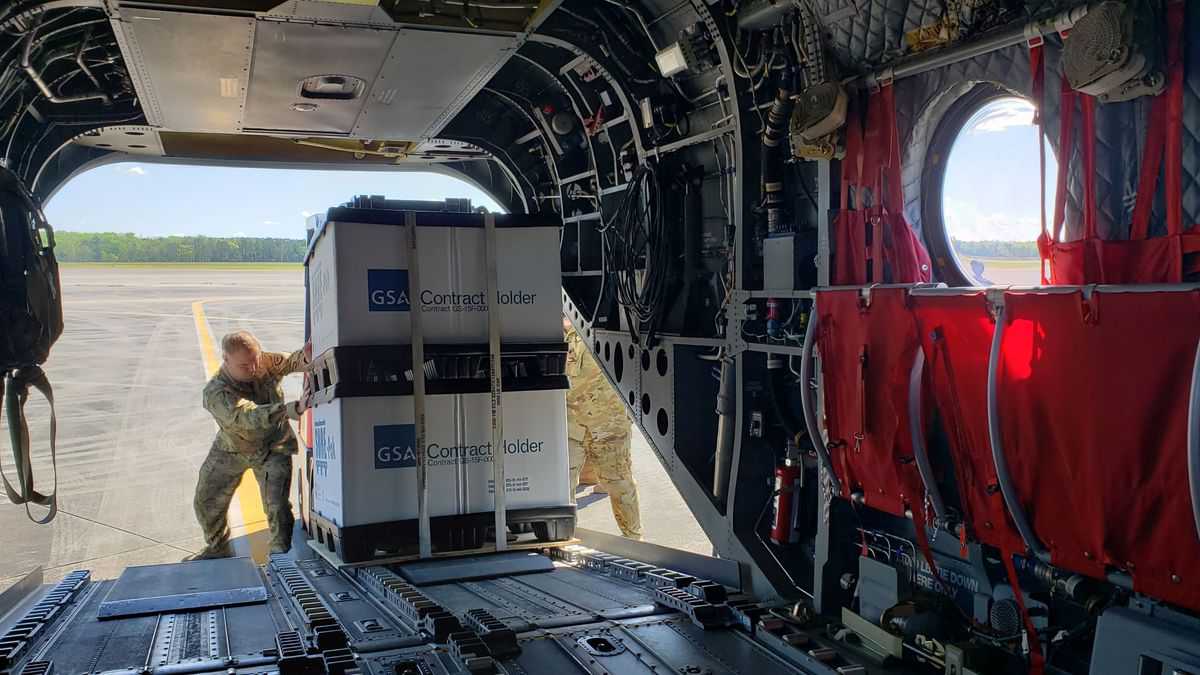The Federal Emergency Management Agency on Tuesday encouraged more companies to participate in a voluntary agreement to better coordinate manufacturing and distribution of critical health care products, such as personal protective equipment and pharmaceuticals, to combat COVID-19 and other pandemics during the next five years.
The agreement enables private sector partners to more freely share information with the federal government, and across industries, and take action in the public interest that would normally be prohibited by antitrust laws.
FEMA published the voluntary agreement, authorized under the Defense Production Act for mobilizing the private sector against national security threats, in August after the Justice Department determined that participating businesses are protected from violating competition laws in the course of their work.
The Defense Production Act allows the president to require the private sector to prioritize and accept contracts in the interest of national defense and incentivize manufacturers to expand production and supply. It also includes provisions authorizing the executive branch to establish voluntary agreements with private industry and a voluntary pool of industry executives who could be called for government service.
The government is adapting these wartime authorities for the first time to fight COVID-19.
During a virtual public briefing, FEMA officials said they have started preparing a plan of action for allocation and distribution of protective gear such as face masks, and anticipate organizing a group to address the manufacture and distribution of respirators.
“It’s crucial that the government and the private sector continue to partner and collaborate as much as possible so we can improve from our collective lessons learned in the last year and start to prepare for what may come,” said Cynthia Spishak, associate administrator for the Office of Policy & Program Analysis & International Affairs.
Part of the Department of Homeland Security, FEMA has been actively involved in the COVID-19 response since March when President Donald Trump declared a national emergency and authorized major disaster declarations across the country. Under Project Airbridge, the agency chartered about 250 freighters with imported medical supplies over a three-month period to help meet urgent needs. It also provided other equipment to states, although some governors complained assistance was too little and late, and that lack of federal management forced states to compete with one another, and even FEMA, to procure scarce supplies at the height of the crisis last spring.
FEMA has routinely worked with the private sector on delivering logistics capabilities related to large multistate events like hurricanes, but “never before have we undertaken to work with the private sector on a nationwide challenge such as that presented by a pandemic, which has created global resource shortages and supply chain instability,” Acting Associate Administrator David Bibo said.
A FEMA-led Supply Chain Task Force this year has integrated industry participants in new ways and “is poised through the voluntary agreement to take that collaboration to the next level,” he said.
Until now, the government has been limited in its ability to plan ahead with the private sector.
FEMA’s Office of Business, Industry and Infrastructure Integration will manage interaction with private sector volunteers and action-plan development.
Click here for more FreightWaves articles by Eric Kulisch.
RECOMMENDED READING:
FEMA winds down Project Airbridge
FEMA expands coronavirus relief flights to more airports
House Democrats raise concerns about FEMA logistics initiative











